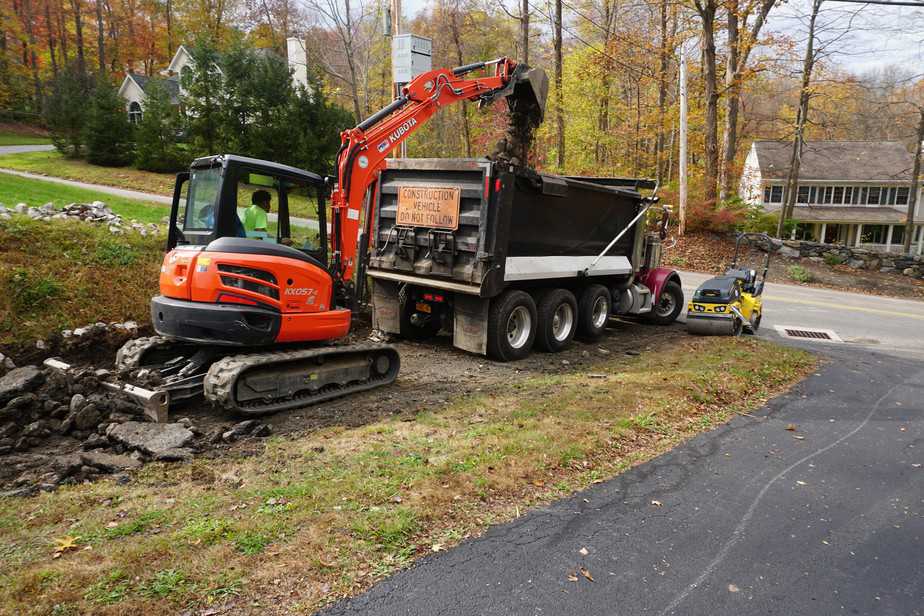Comprehensive Excavation Techniques: Understanding the Basics for Success
In the realm of building and construction and civil design, the importance of effective excavation techniques can not be overemphasized. The mindful preparation, accurate execution, and careful focus to detail needed in excavation projects require a comprehensive strategy that includes numerous essential aspects. From preliminary dirt evaluation to the execution of security actions and regular progression monitoring, grasping these core components is necessary for attaining success in any excavation venture. Nonetheless, the true mastery lies not simply in recognizing these basics however in effortlessly integrating them to browse the intricacies of excavation tasks with finesse.
Comprehending Excavation Task Planning

The initial phase of any kind of excavation task is the preparation stage, where essential choices are made that can significantly impact the end result of the job. Comprehending the job timeline, budget plan, and range restraints is vital for producing a thorough excavation plan that makes sure the project's success.
One key facet of excavation project planning is the growth of a thorough timeline that describes the sequence of landmarks, target dates, and tasks. This timeline acts as a roadmap for the job team, permitting them to track development and make necessary modifications to ensure the project stays on schedule. Furthermore, a well-defined budget that represents all expenses, consisting of tools rental, labor prices, and products, is crucial for staying clear of price overruns and delays. By meticulously thinking about all these factors throughout the drawing board, excavation projects can be carried out successfully and properly, causing effective outcomes.
Dirt Evaluation and Website Evaluation
Conducting complete soil evaluation and site assessment is a vital action in the prep work phase of any kind of excavation project. Soil evaluation entails establishing the make-up, framework, and properties of the soil at the excavation site. This information is essential for understanding the dirt's bearing capacity, wetness web content, and possibility for erosion, which are key elements in figuring out the excavation methods and devices needed for the task.
Website examination exceeds soil analysis and incorporates a broader analysis of the general website conditions. This assessment consists of recognizing any possible risks, such as underground energies, environmental issues, or unpredictable terrain, that can impact the excavation procedure. By completely examining the site, task supervisors can establish effective excavation techniques that prioritize safety and security, effectiveness, and environmental security.
Utilizing advanced modern technologies like ground-penetrating radar, soil tasting, and drone surveys can enhance the accuracy and efficiency of dirt analysis and site evaluation. Investing time and sources in these preliminary actions can eventually save time and avoid expensive hold-ups or difficulties during the excavation process.
Devices Choice and Usage
Efficient excavation jobs count heavily on tactical equipment selection and application to make sure optimal efficiency and productivity. Selecting the best tools for the work is critical in taking full advantage of performance and minimizing downtime. Aspects such as the sort of soil, depth of excavation, and project range play a substantial function in determining one of the most appropriate devices for the task at hand.

In addition to choosing the proper tools, appropriate use is key to project success. Operators must be educated to handle the equipment securely and successfully - lancaster excavation. Regular maintenance checks and prompt fixings assist stop breakdowns and make certain constant performance throughout the job
Security Procedures and Rules Compliance
In the realm of excavation projects, focusing on safety actions and conformity with see here now regulations is vital to ensuring a legally sound and safe and secure operational environment. Safety actions encompass a series of methods, including conducting thorough site analyses, implementing appropriate signage and barriers, and supplying adequate her explanation safety and security training for all employees associated with the excavation procedure. Adherence to regulations, such as OSHA requirements in the United States, ensures that the excavation task meets the necessary standards to secure workers, onlookers, and the surrounding setting.

Surveillance Development and Adjusting Approaches
Exactly how can predict managers effectively track the development of excavation projects and adapt their methods appropriately to maximize end results? Monitoring development is crucial for guaranteeing that excavation jobs stay on this hyperlink track and satisfy due dates.

Final Thought
In conclusion, understanding the principles of detailed excavation strategies is essential for the success of any job. By recognizing project preparation, assessing soil and website problems, picking proper devices, abiding by safety laws, and checking progress, task managers can make sure a reliable and smooth excavation procedure. Carrying out these approaches will result in successful results and minimize prospective threats or troubles during the excavation job.
The initial stage of any type of excavation task is the planning phase, where crucial decisions are made that can dramatically impact the result of the task. Recognizing the project spending plan, timeline, and extent constraints is important for creating a detailed excavation plan that ensures the job's success.
Exactly how can forecast managers efficiently track the innovation of excavation projects and adjust their strategies as necessary to optimize end results? By carefully checking progress and being prepared to adapt strategies, task managers can enhance the overall success of excavation tasks.
By understanding project planning, evaluating dirt and website conditions, picking proper tools, conforming with safety policies, and keeping track of progress, task supervisors can make sure a smooth and effective excavation process.